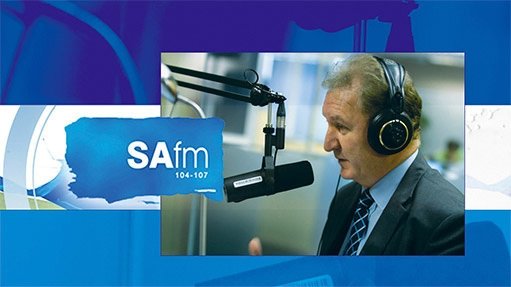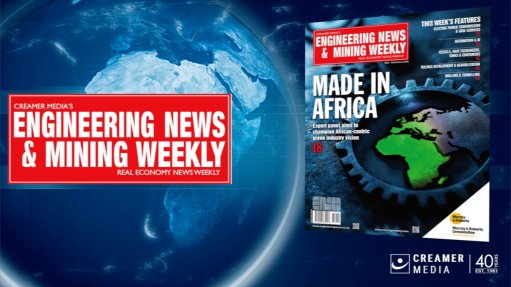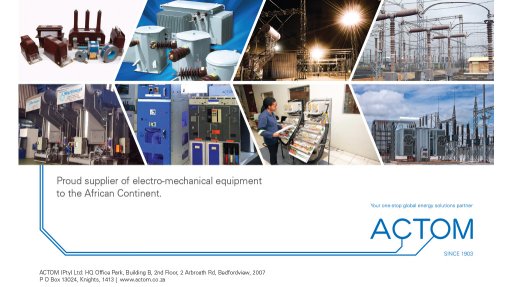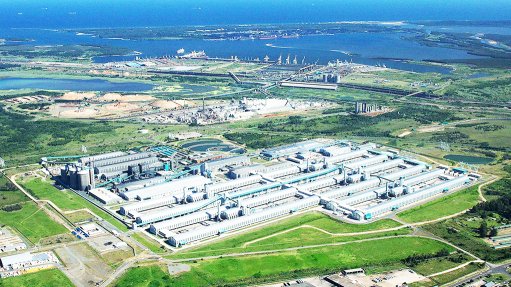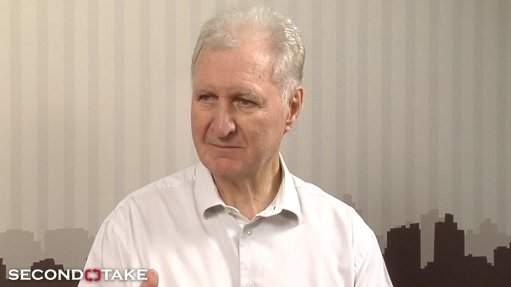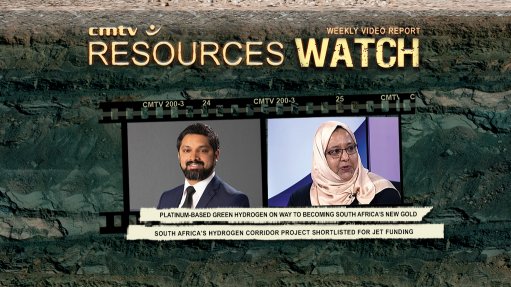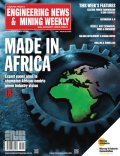Neglect, mismanagement threaten S Africa's once-promising transport infrastructure, warns Cesa
South Africa boasts extensive road and railway systems, along with well-equipped ports and airports, some of which are comparable to infrastructure in developed nations. However, a lack of maintenance and poor management have resulted in degrading transport infrastructure, with far-reaching consequences, says industry association Consulting Engineers South Africa (Cesa) CEO Chris Campbell.
He explains that inadequate road maintenance, as well as poor management and maintenance of road stormwater management systems, have affected the long-term integrity of roads. Additionally, road safety signage and signboards are, in many instances, no longer visible, which poses a risk to road safety.
Regarding rail, he explains that the commuter passenger rail system is also not functional enough to efficiently serve commuters, resulting in an increased use of alternative more costly modes of public transport.
Further, long-distance rail networks are not reliable enough for timely transport of freight, resulting in an increased use of road freight haulers, which is currently occurring with companies in the mining and long distance logistics sectors, an alternative that in most instances is more costly.
“The unintended consequence also, is that, with much higher volumes of heavy road traffic, road safety has been compromised and the life span of many roads is being shortened, as they were never designed for such high volumes of heavy-axle-load traffic over such short period of time,” Campbell notes.
Beyond Mitigation
Campbell asserts that many transport infrastructure systems “are beyond simple mitigation measures” and require “drastic change” in how the systems are managed to resolve challenges and shortcomings.
“There is a significant need to implement the National Framework towards the Professionalisation of the Public Sector, signed off by President Cyril Ramaphosa in October 2022, at all levels of responsibility in public entities, if we are to realise these required drastic changes,” says Campbell.
Further, technical teams should have a mix of experienced and young professionals, as opposed to prioritising potential cost savings at the expense of experienced people. He also emphasises the need for mentorship in the industry to develop new entrants in order to ensure a sustainable pipeline of experienced professionals into the future.
Meanwhile, crime, criminality and corruption continue to negatively impact transport networks and have to be eradicated.
Government’s Role
As the owner of public transport infrastructure, government must ensure that infrastructure is maintained so that it can reach its full lifespan potential, and it is their responsibility to upgrade and improve existing infrastructure to meet the growing demands, says Campbell.
“A growing population and urbanisation increase the demand for a functional integrated urban transport network, as is the case with most developed countries, where buses, cars, motorcycles, trams, cyclists and pedestrians all share the same space, without adversely impacting on each other.”
Campbell explains that it is important to evaluate the impact of projects that have been developed to improve the country’s transport infrastructure, such as the bus rapid transit system, which has not been successful in attracting significant numbers of passengers and should be reconsidered.
“There is little evidence of the success of projects such as these in South Africa and the continued expenditure could instead be used to ensure that other existing transport systems are functional, safer and more reliable. We must be bold enough to accept when a system has failed and have an exit strategy, rather than continue to plough much-needed funds into them.”
Campbell advocates for the implementation of an integrated transport system and stronger public–private partnerships.
“The increasing number of passenger vehicles on the roads has led to congestion, which will only get worse with growing urbanisation, making it essential to re-establish and promote secure park-and-ride facilities and ride sharing facilities as an alternative in the absence of a functional, safe and reliable commuter rail service,” he adds.
He elaborates that implementation of the next phase of the Gautrain, which covers the western and southern areas of Gauteng could ease such congestion. The City of Cape Town, which has one-way road networks between the city centre and the residential areas, would benefit from a resurrected, functional, safe and reliable rail commuter service.
“If [the Passenger Rail Agency of South Africa], for example, is not able to get this in place, sustainably, then maybe the idea of the City itself operating this, much with the same philosophy that is being considered with private rail operations on public freight networks, is not such a bad idea either,” Campbell notes.
Moreover, the taxi system, in its entirety, whether minibus, metered or ride hailing, needs to be regulated to ensure compliance, a healthy balance of competition and passenger safety so these alternatives become an integral part of the reliable and functional transport system South Africa needs.
Campbell says government's financial constraints have made it challenging to maintain and upgrade major road and rail network infrastructure. To alleviate the burden on public financing, he suggests that private-sector investment and the user-pays principle should be applied to offset this demand on the fiscus.
“Additionally, if we do intend embarking on the type of concessions bandied about by Transnet, there is a need for longer concession periods to make this a more viable proposition for private sector partners to recover the significant investments they would need to make in rolling stock.”
Campell also emphasises that functioning State-owned enterprises, namely the South African National Roads Agency, should not be overloaded with all manner of road maintenance to the point that it becomes unable to fulfil its core mandate of national routes.
“Continuing to transfer this responsibility will, with all certainty, “break the camel’s back”, especially since they are already capacity constrained,” he adds.
Instead, provincial governments should be equipped with the requisite competent expertise to fulfil their own mandates.
“Functional roads, rail, air and sea transport networks are avenues for economic growth in a country. We cannot afford to allow these to degrade any further, such that we run the risk of reaching the tipping point. We need a growing economy to meet all of the social needs in our country, ” Campbell concludes.
Comments
Press Office
Announcements
What's On
Subscribe to improve your user experience...
Option 1 (equivalent of R125 a month):
Receive a weekly copy of Creamer Media's Engineering News & Mining Weekly magazine
(print copy for those in South Africa and e-magazine for those outside of South Africa)
Receive daily email newsletters
Access to full search results
Access archive of magazine back copies
Access to Projects in Progress
Access to ONE Research Report of your choice in PDF format
Option 2 (equivalent of R375 a month):
All benefits from Option 1
PLUS
Access to Creamer Media's Research Channel Africa for ALL Research Reports, in PDF format, on various industrial and mining sectors
including Electricity; Water; Energy Transition; Hydrogen; Roads, Rail and Ports; Coal; Gold; Platinum; Battery Metals; etc.
Already a subscriber?
Forgotten your password?
Receive weekly copy of Creamer Media's Engineering News & Mining Weekly magazine (print copy for those in South Africa and e-magazine for those outside of South Africa)
➕
Recieve daily email newsletters
➕
Access to full search results
➕
Access archive of magazine back copies
➕
Access to Projects in Progress
➕
Access to ONE Research Report of your choice in PDF format
RESEARCH CHANNEL AFRICA
R4500 (equivalent of R375 a month)
SUBSCRIBEAll benefits from Option 1
➕
Access to Creamer Media's Research Channel Africa for ALL Research Reports on various industrial and mining sectors, in PDF format, including on:
Electricity
➕
Water
➕
Energy Transition
➕
Hydrogen
➕
Roads, Rail and Ports
➕
Coal
➕
Gold
➕
Platinum
➕
Battery Metals
➕
etc.
Receive all benefits from Option 1 or Option 2 delivered to numerous people at your company
➕
Multiple User names and Passwords for simultaneous log-ins
➕
Intranet integration access to all in your organisation







